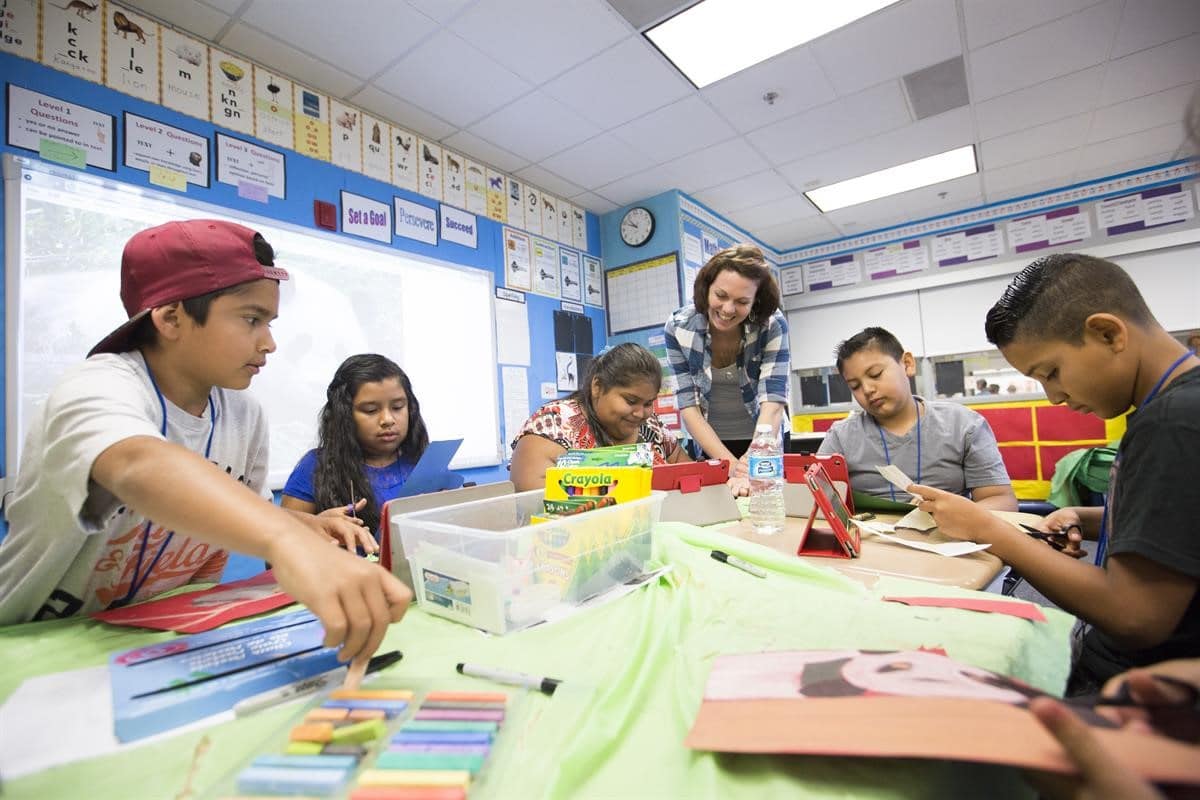26 Nov2019
By Jane E. West
 This blog post is written by AACTE consultant Jane West and is intended to provide updated information. The views expressed in this post do not necessarily reflect the views of AACTE.
This blog post is written by AACTE consultant Jane West and is intended to provide updated information. The views expressed in this post do not necessarily reflect the views of AACTE.
Last Thursday, Congress postponed the showdown over government funding until Dec. 20 and hit the road for Thanksgiving. They are planning some fancy footwork upon return as the impeachment process steams forward and a government shutdown remains a possibility.
Showdown over Government Funding Postponed until Dec. 20
Once again, the Congress has punted on funding the government. December 20 is the new deadline for determining overall spending levels for each of the 12 funding bills and completing them. Funding for education hangs in the balance with the House passed bill including a $5 billion increase, but no such increase in the Senate bill. The budget agreement adopted earlier in the year provides for an increase of about $100 billion for defense and domestic spending for this fiscal year. If Congress cannot agree on new funding levels, this new infusion of funds will be left on the drawing table.
20 Nov2019
By Maria Hyler

On November 14, I had the privilege of moderating the first in a series of webinars produced through a partnership of AACTE and the Educator Preparation Laboratory (EdPrepLab). This webinar, “Social and Emotional Learning, Cultural Competence, and Equity in Teacher Preparation,” will be followed by three others focusing on transformative research and practice in educator preparation.
Joining me for the webinar were Nancy Markowitz of the Center for Reaching and Teaching the Whole Child, Patty Swanson from San Jose State University, Pat Norman from Trinity University, and Mari Jones from the HighTech High Graduate School of Education.
Both Trinity and High Tech High, where Norman and Jones teach, are members of the EdPrepLab network. EdPrepLab, which launched this year, is an initiative of the Learning Policy Institute and the Bank Street College of Education that aims to strengthen educator preparation in the United States by linking research, policy, and practice and by supporting and expanding preparation that is equity-focused, student-centered, and grounded in the science of learning and development.
19 Nov2019
By Jane E. West

This blog post is written by AACTE consultant Jane West and is intended to provide update information. The views expressed in this post do not necessarily reflect the views of AACTE.
Congress Still Working to Avoid that Government Shutdown
The current continuing resolution—a bill that keeps the government temporarily funded – expires next week, on November 21. Congressional leaders have been scrambling this week to find a way to keep government funding extended beyond that time, and thus avoid a government shutdown. They appear to be closing in on another temporary funding extension—through December 20—predicated on progress on the big obstacle, which is agreeing on top line totals for each of the 12 funding bills. Since the House and Senate did not agree on those totals before they wrote their bills, there are significant discrepancies which can only be resolved by a House/Senate agreement on one figure for each bill. This is critical for the bill that funds education, as the House bill is about $5 billion more generous for education than the Senate draft bill.
07 Nov2019
By Michele Back
 This article originally appeared in the Language Educator and is reprinted with permission from the American Council on the Teaching of Foreign Languages.
This article originally appeared in the Language Educator and is reprinted with permission from the American Council on the Teaching of Foreign Languages.
The ability to collaborate and advocate beyond the classroom and across stakeholders, from department chairs to administrators to parents, is a crucial teacher leadership skill. Moreover, the critical shortage of world language teachers, combined with the diminishing number of U.S. students taking world language courses, means that teacher candidates in this content area must be strong advocates for their own profession from the moment they step into the classroom.
During my time as the world language advisor and methods instructor at the University of Connecticut’s Neag School of Education, I have become increasingly preoccupied with the scarcity of world language teacher candidates, especially as compared to other content areas. I have wondered how our current candidates could apply their emerging leadership roles in ways that would encourage K–12 students to both continue learning languages and to also consider careers in world language education.
01 Nov2019
By Jane E. West

This blog post is written by AACTE consultant Jane West and is intended to provide update information. The views expressed in this post do not necessarily reflect the views of AACTE.
It’s been quite a week in DC. The most impressive news is having our home team—the Nationals—win the World Series, despite their substantial underdog status. Other than that, the House voted to proceed officially with the impeachment process on a totally partisan basis—and that promises to suck the oxygen out of any sort of Congressional agenda for months.
Are we Headed to a Government Shutdown … Again?
While the Senate made progress on funding bills this week, big hurdles remain. The Senate passed a package of four appropriations bill with a bipartisan vote of 84-9, the first funding bills to pass the Senate. However, Senate Democrats blocked movement on the package of two large spending bills: Defense and Labor/HHS/Education. They are not happy that President Trump is insisting on funding for his border wall and that the Labor/HHS/Education bill’s spending level is so low.
31 Oct2019
By Cecelia Monto

The need to diversify the teaching workforce is well documented (Darling-Hammond, 2010). Student demographics across the United States have significantly changed in the last 20 years, with particular increases in bilingual and Hispanic student populations (Aud, Hussar, Kena, Bianco, Frohlich, Kemp, &Tahan, 2011). However, the teaching workforce has not reflected the shift in student demographics, and a growing gap has emerged between the racial and ethnic backgrounds of students and teachers. Because community colleges serve a high percentage of diverse students, a community college pathway into teaching represents a promising approach for increasing the diversity of the teaching workforce.
29 Oct2019
By Jacqueline Rodriguez

AACTE is excited to partner with the Educator Preparation Laboratory (EdPrepLab), an initiative of the Learning Policy Institute (LPI) and Bank Street College of Education, to bring a series of webinars to members. Educator preparation programs across the country can access AACTE and EdPrepLab resources to support their teaching, research, and policy in higher education.
In this series of webinars, our members will hear from member institutions, stakeholders, scholars, practitioners, and policymakers as presenters dive into topics that will include addressing social emotional learning, cultural competence, creating inclusive classroom and school environments, and teacher residency models.
We hope you will register for our first webinar on Social and Emotional Learning, Cultural Competence, and Equity in Teacher Preparation that will take place on November 14 at 3:00 p.m ET. The panel of experts include:
29 Oct2019
By Jane E. West
 This blog post is written by AACTE consultant Jane West and is intended to provide update information. The views expressed in this post do not necessarily reflect the views of AACTE.
This blog post is written by AACTE consultant Jane West and is intended to provide update information. The views expressed in this post do not necessarily reflect the views of AACTE.
Funding Bills Move in the Senate, but Not for Education
November 21, less than a month away, is the date the government runs out of money. The ball is in the Senate court, as they have yet to pass any appropriations bills on the floor. Majority Leader McConnell (R-KY) has teed up passage of the first package of funding bills, which Democrats have said they will support. But that package does not include education spending, which is in the Labor/HHS/Education appropriations bill.
29 Oct2019
By Deborah Koolbeck
 Registration is open for the AACTE member exclusive October 2019 Federal Update webinars. AACTE offers these webinars to you on two different days of the week and at two different times to accommodate members’ teaching schedules and time zones.
Registration is open for the AACTE member exclusive October 2019 Federal Update webinars. AACTE offers these webinars to you on two different days of the week and at two different times to accommodate members’ teaching schedules and time zones.
Even though one might expect activities to slow down in Washington as the year begins to wind down, plenty is happening that impacts the profession. On October 15, Chairman Scott (D-VA) of the U.S. House of Representatives Committee on Education and Labor revealed his proposal for reauthorizing the Higher Education Act. What does it look like for educator preparation? Will Chairman Alexander (R-TN) move his bill through the U.S. Senate Committee on Health, Education, Labor, and Pensions? And not to be forgotten is the appropriations process—as the Congress heads toward a November 21 deadline for funding the federal government, what is the outlook? Will there be another short-term Continuing Resolution (CR), or could we see even a year-long CR? Could a government shutdown happen? This webinar will cover these topics, as well as the advocacy steps that you can take to engage in the process, and there will be a Q & A session for you to get your answers to your questions. Register today!
Tuesday, October 29, 2019, 5:00-6:00 p.m. EDT: Register now.
Wednesday, October 30, 2019 11:00 am-12:00 noon EDT: Register now
25 Oct2019
By Grant Hayes
 In 2017-18, North Carolina reported 1,618 teacher vacancies. Those represented classrooms that were without a teacher at worst or were without a properly trained teacher at best. At the same time, enrollment in the UNC system’s schools of education has dropped 30% since 2010.
In 2017-18, North Carolina reported 1,618 teacher vacancies. Those represented classrooms that were without a teacher at worst or were without a properly trained teacher at best. At the same time, enrollment in the UNC system’s schools of education has dropped 30% since 2010.
Across the country, teacher shortages are affecting public education. In Oklahoma, the state has issued 3,000 emergency teacher certifications which allow people to begin teaching without education coursework, classroom experience or passing state certification exams. Data collected by the Oklahoma Association of Colleges for Teacher Education shows that emergency-certified teachers are rated lower and leave teaching at a higher rate. We do not want to see this troubling trend happen in North Carolina.
UNC system teacher graduates make up the bulk (37%) of teachers in N.C. public schools. UNC system teacher graduates are more likely to return in years 2-5, showing a commitment to the public schools of N.C. And UNC system science and math teacher graduates outperform teachers prepared in other ways.
In the coming months the East Carolina University College of Education will continue to showcase how we prepare our graduates to be the best in their chosen fields
22 Oct2019
By Jane E. West

This blog post is written by AACTE consultant Jane West and is intended to provide update information. The views expressed in this post do not necessarily reflect the views of AACTE.
November 21 Deadline Looming to Fund the Government: Will Congress Act?
Just before Congress left town for their 2-week recess, they passed a short-term funding bill to keep the government open, but only until November 21. As that deadline comes closer, the pressure to act increases. The ball is in the Senate’s court, as the House has passed 10 of its 12 funding bills.
The Senate is planning to move bills next week, but hot-button issues related to the border wall, homeland security, and abortion will likely crop up, as well as significant funding level differences between the House and the Senate that will likely hold things up.
Possible outcomes include another short-term spending extension (perhaps through December),
18 Oct2019
By Toni Molle

Photo: Courtesy of The California State University
This article and photo originally appeared on The California State University website and are reprinted with permission.
Three California State University (CSU) campuses were awarded nearly $3 million from the U.S. Department of Education’s Teacher Quality Partnership (TQP) program to recruit and prepare science, technology, engineering, mathematics (STEM) and computer science teachers to serve students in low-income and high-need schools throughout the state. California State University campuses in Chico ($1,027,195), Dominguez Hills ($1,028,844) and Monterey Bay ($811,719) have received a total of $2,867,758 in funding for the program.
“Collaboration is a key component among educators,” said Marquita Grenot-Scheyer, assistant vice chancellor for Educator Preparation at the CSU Chancellor’s Office. “By expanding the ongoing collaborative partnerships between the CSU and high-need school districts and through development of engaging STEM and computer science programs, more students will succeed in the classroom.”
18 Oct2019
By Anne Cantrell

Photo by Adrian Sanchez-Gonzalez
This article and photo originally appeared on the Montana State University website and are reprinted with permission.
Montana State University’s Department of Education and its partners have received funding totaling $6.2 million for a program delivered mostly online that is designed to recruit, train and mentor dozens of high-quality educators to work in rural areas of Montana.
The funds include a $3.1 million grant from the U.S. Department of Education and more than $3.1 million in matching funds and services from nearly a dozen partner organizations. They will be used for a five-year project, “Addressing Rural Recruitment and Retention in Montana,” that aims to address a shortage of teachers in rural locations across the state.
“We are excited to provide training and professional development in the first two years of their teaching careers to residents of rural, high-needs communities along with the Montana Office of Public Instruction and our many statewide partners,” said MSU education professor Ann Ewbank, the project’s principal investigator.
“Our common goal is to ensure that every student, from Broadus to Lolo, and from Scobey to Troy, has access to highly effective educators,” Ewbank added. “The Teacher Quality Partnership grant has the potential to strengthen K-12 education in rural communities. When rural schools thrive, Montana thrives.”
17 Oct2019
By Robert Whitby
This article originally appeared on the University Of Arkansas website and is reprinted with permission.
Across the country, there’s a critical need for teachers who know how to use evidence-based practices to improve the adult outcomes of students with disabilities.
The University of Arkansas and University of Oklahoma have partnered to help meet that need with a unique program called Razorback-Sooner Scholars: Leaders for Transition.
Leaders for Transition will provide a unique, funded doctoral experience for 10 students at the two universities who want to be special education assistant professors interested in transition services for youth with disabilities and their families.
Recently, the universities were awarded a $2.4 million grant from the U.S. Department of Education, Office of Special Education Programs to fund the program.
11 Oct2019
By AACTE
The American Association of Colleges for Teacher Education (AACTE) celebrates its 20 member institutions that received the 2019 Teacher Quality Partnership (TQP) grants from the U.S. Department of Education announced last week. With grants totaling more than $20 million, the TQP is the only federal initiative dedicated to strengthening educator preparation at institutions of higher education.
“AACTE celebrates all of the grant recipients, especially our 20 AACTE member institutions, because our members work year-round to advocate for continual funding for this critical initiative,” said Lynn M. Gangone, AACTE president and CEO. “With so much volatility on Capitol Hill, we view the consensus to support teacher preparation programs as a huge victory. TQP grants empower our members to extend and elevate their innovative and exemplary work.”
 This blog post is written by AACTE consultant Jane West and is intended to provide updated information. The views expressed in this post do not necessarily reflect the views of AACTE.
This blog post is written by AACTE consultant Jane West and is intended to provide updated information. The views expressed in this post do not necessarily reflect the views of AACTE.








 This article originally appeared in the
This article originally appeared in the 

 This blog post is written by AACTE consultant Jane West and is intended to provide update information. The views expressed in this post do not necessarily reflect the views of AACTE.
This blog post is written by AACTE consultant Jane West and is intended to provide update information. The views expressed in this post do not necessarily reflect the views of AACTE. Registration is open for the AACTE member exclusive October 2019 Federal Update webinars. AACTE offers these webinars to you on two different days of the week and at two different times to accommodate members’ teaching schedules and time zones.
Registration is open for the AACTE member exclusive October 2019 Federal Update webinars. AACTE offers these webinars to you on two different days of the week and at two different times to accommodate members’ teaching schedules and time zones. In 2017-18, North Carolina reported 1,618 teacher vacancies. Those represented classrooms that were without a teacher at worst or were without a properly trained teacher at best. At the same time, enrollment in the UNC system’s schools of education has dropped 30% since 2010.
In 2017-18, North Carolina reported 1,618 teacher vacancies. Those represented classrooms that were without a teacher at worst or were without a properly trained teacher at best. At the same time, enrollment in the UNC system’s schools of education has dropped 30% since 2010.
